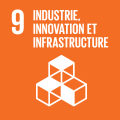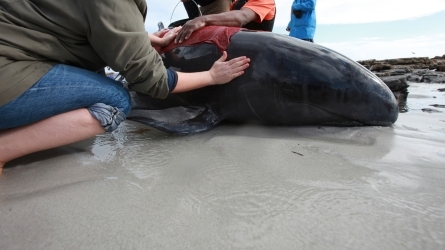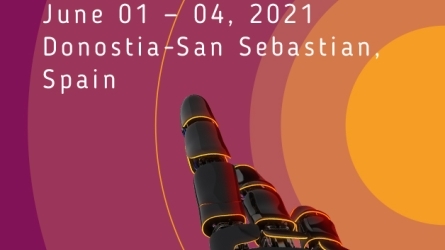
Transforming workplaces through digitalisation - Beyond4.0 Summer School 2021
Description
The Workshop will be held face-to-face and there will also be the possibility of participating live online through ZOOM. In the registration process, please select the participation of your choice: face-to-face or live online.
The Summer School's main objective is to provide comprehensive training based on an intensive program on digitalisation and automation. The event aims to deepen our understanding of evidence-based policies with the transformative potential to shape work and welfare in the Digital Age. The activity offers a scenario to reflect the state of progress of the projects. There will be strands in areas such as the digitalisation of production, the digitalisation of work, skills, data sources, historical analysis and social policy. The Summer School is focused on sharing and discussion. Besides, the Summer School will enable PhD students to present their current research work.
The Summer School will be topic-oriented and will follow four main drivers:
1. Digitalisation of work and production:
- How to study and research work and welfare in the digital age
- How to study socio-economic consequences of technological transformations
2. Historical analysis and data sources:
- How to study technological transformations from a historical perspective
- What kind of data sets are useful and how to best use and connect them
3. Regional responses to digitalisation:
- How to study regional contexts and ecosystems and their digital economic transformation
4. Social policy and skills:
- How to study the impact of platforms on welfare, tax and inclusiveness
- How to understand future skills and roles of stakeholders
Researchers from European top-tier research and academic institutions will discuss all topics. Along with BEYOND4.0, other consortia from the H2020-programmes are participating, such as TECHNEQUALITY and PLUS. Also, other research actions, such as PARADIGMS4.0 will be present. Supporting networks are the European School of Social Innovation (ESSI) and the European Network of Workplace Innovation (EUWIN).
The BEYOND4.0 consortium is composed of nine European universities and research centres. The consortium is responsible for organising the second edition of the Summer School. Sinnergiak - the University of the Basque Country, the Institute for Employment Research - University of Warwick and TNO are the core designers of the programme. BEYOND 4.0 addresses the general priorities of the H2020 Work Programme (2018-2020) "Europe in a changing world - Inclusive, innovative and reflective societies". This project receives from the European Union's Horizon 2020 research and innovation programme under Grant Agreement No 822296.
Consortium:
- Sinnergiak - University of the Basque Country (Spain)
- Institute of Employment Research - University of Warwick (UK)
- The Netherlands Organisation of Applied Research (Netherlands)
- Department of Social Research - University of Turku (Finland)
- Le CNAM-CEET (France)
- Institute of Philosophy and Sociology - Bulgarian Academy of Sciences (Bulgaria)
- Sozialforschungsstelle Dortmund - Technische Unviersität Dortmund (Germany)
- Institute for Innovation and Public Purpose - University College London (UK)
- University of Helsinki (Finland)
Objectives
To reflect the project's state of progress and present findings from the project on social policy; historical analysis; data sources; skills; policy-making; digitalisation of work and production.
To enable young European PhD students to present their work. A special session will be organised to help develop students' skills (e.g. EU policy engagement, communicating research to a wider audience)
To feature parallel session in cooperation with other relevant EU-level research projects, networks and institutions.
Activity directed to
- University students
- Students not from university
- Teachers
- Professionals
Methodology
During the Summer Course, diverse topics and multi-disciplinary methodologies will be explained. The programme includes a range of academic activities such as lectures, roundtables and workshops. BEYOND4.0 aims to help deliver an inclusive European future by examining the impact of the new technologies on the future of jobs, business models and welfare. Our research project employs cross-disciplinary and innovative research methods combining historical, EU-wide, regional and company-level data. The project aims to promote an inclusive digital economy that provides decent work and a decent living for EU citizens.
Directors

Egoitz Pomares Urbina
Universidad del País Vasco/Euskal Herriko Unibertsitatea, Ikerlaria
Egoitz holds a Bachelor of Laws (major in Economics), a MBA and MA in Social Innovation. He obtained his international PhD on Social and Legal Sciences by the University of the Basque Country. Since 2013 is part of Sinnergiak, a research organisation of the University of the Basque Country. In addition to his academic background he is a member of the Steering Committee of the European Workplace Innovation Network (EUWIN) and Member of the Beyond4.0 and GI-NI projects (H2020) Executive Boards.
Speakers

Sally-Anne Barnes Barnes
Dr

Ronald Dekker

Steven Dhondt
Steven Dhondt PhD is senior research scientist at TNO (SPE) and Visiting Professor at the Catholic University of Leuven (chair: Workplace Innovation). Steven has been involved in large scale EU-projects (HiRes; Meadow; the European learning network on Workplace Innovation (EUWIN); SI DRIVE, SIMPACT, SHINE) and projects for interna- tional organisations (ILO, EU-OSHA, Eurofound). He is the coordinator of the FWO/SBO Paradigms-project which develops strategies for workplace innovation in Belgium. Dhondt is responsible for the development of a monitor for measuring technology and labour market impacts (Institute GAK (NL); Shift2Rail (EU)). He has written extensively on workplace innovation, quality of work and innovation. He co-ordinates a major TNO research programme on Smart Work. He is member of several advisory/management boards for Euro- found, INSCOPE, sfs-TUDO and major EU-projects (Finland, Germany, Norway, Belgium).

Jan Drahokoupil

Dessers Ezra
Ezra Dessers PhD, is Research Manager at HIVA-KU Leuven and Assistant Professor at KU Leuven. He is actually in charge of Paradigms 4.0, a multidisciplinary research project that investigates how key enabling technologies, which are considered to be the motors behind the ongoing digital transformation of industry, could foster societal aims, while at the same time cradle high performance organisations. Paradigms 4.0 studies the relation between technology and work organisation, the link with occupational health and safety, the shifting needs in terms of skills and competencies, the role of worker participation in innovation, and the labour market impact of these new technologies. The project looks at how the gained insights might serve as building blocks for high road strategies towards Smart Industrial Specialisation at the level of organisations and ecosystems.

Enrique Fernandez Macias
Enrique Fernández-Macías is a former Research Manager at Eurofound. He currently works at the European Commission Joint Research Centre in Seville. Enrique holds a PhD in Economic Sociology from the University of Salamanca, his main research interests include job quality, occupational change and the division of labour.

Mattia Frapporti
Mattia Frapporti has obtained his PhD in History and Cultures at the University of Bologna with a research thesis entitled “The logistics space of the United Europe. On Jean Monnet and the rationality of integration”. His focuses are on the process of European integration, the politics of infrastructures, logistics and the role of State. His now post-doc fellow at the University of Bologna mainly focusing on platforms in the urban spaces and on the genealogy of logistics.

Carl Benedikt Frey
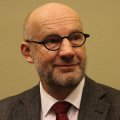
Olli Kangas
Prof. Olli Kangas (male) has a wide experience of comparative policy analyses. He is the leader of the planning and evaluation group of the Finnish basic income experiment. The Finnish basic income experiment is one of the policy measures designed to reform the Finn- ish social security system to better correspond with the changes in working life, to make social security more participatory and diminish work-disincentives, reduce bureaucracy and simplify the complex benefit system. Furthermore, he is Director of Community and Gov- ernmental Relations at the Social Insurance Institution of Finland (KELA). His research has revolved around the political economy of the welfare state, structural, political and cultural causes of the development and consequences of different welfare state regimes.

Vassil Kirov
Dr Vassil Kirov PhD (Sciences Politiques) is Associate Professor in the Institute for the Study of Societies and Knowledge, Bulgarian Academy of Sciences (ISSK) and Asso- ciate researcher at the Centre Pierre Naville, University of Evry (France) and at the European Trade Union Institute (ETUI). His research interests are in the sociology of enterprise, work and organisations, employment relations, digitalization labour markets and Europeanisation. Vassil Kirov has been a researcher in large EU-funded research projects and has worked as an external expert for the European Commission, ILO, Eurofound, CEDEFOP, the Fundamental Rights Agency, the Swiss Development Agency, etc. Currently he is a Visiting Professor at Sciences Po, France and LISER, Luxembourg. He has published several books and articles in international scientific journals, including on digitalization and platform work.
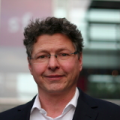
Michael Kohlgrüber
Dr Michael Kohlgrüber (male) is an economist, doing research in business, economic and social sciences. Since 2012, he is senior researcher at Social Research Centre (sfs). His cur- rent research is focused on the integration of social and technological innovation in indus- trial companies. In the context of Industry4.0, he is developing and implementing social requirements related to the design of sociotechnical systems (technology-organization-peo- ple/skills), i.e., implementing social innovation processes, getting users and stakeholders of new technologies involved in defining social requirements. This includes the perspective of employees and their representatives (work councils, trade unions). Furthermore, he is doing research on the situation and perspective of low-qualified workers considering the contri- butions of different actors of the labour market and national VET systems.
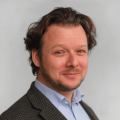
Mark Levels
Prof. dr. Mark Levels is Professor of Health, Education and Work at Maastricht University. He is program director of the research program Health, Skills, and Inequality at the Research Centre for Education and the Labor Market (ROA) of Maastricht University, member of the ROA management team, associate member of Nuffield College in Oxford (UK), fellow of the Graduate School of Business and Economics (GSBE)of Maastricht University, and fellow of the Amsterdam Centre for Learning Analytics (ACLA). He teaches macrosociology at University College Maastricht (UCM).

Fregin Marie-Christine
Maastricht University
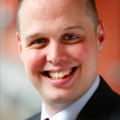
Raymond Montizaan
Raymond Montizaan is researcher at the Research Centre for Education and the Labour Market (ROA). He holds a Master’s degree in Economics from Tilburg University and a Master’s degree in Domain Orientated Economics from Radboud University Nijmegen. He obtained his PhD from Maastricht University in 2010. Before joining ROA, he worked at the Netherlands Bureau for Economic Policy Analysis (CPB). He is affiliated to NSI and IZA. In his current work, he focuses on the relation between human capital development, productivity and retirement, and behavioral economics.

Silvia Napolitano
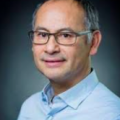
Peter Oeij
TNO
Peter Oeij, PhD is a senior research scientist. He is and was involved in several EU- projects and international projects for EU-statutory organizations (such as OSHA, Euro- found). Until recently he was TNO-project leader of the just finished SI Drive (H2020/FP7) project and of the Eurofound study on ‘Workplace Innovation in European companies (ended in 2015). Peter holds a PhD in management science and is an editorial board member of four journals. The focus of his work is on innovation management, workplace innovation, social innovation and organizational and team dynamics.

Carlota Perez
Carlota Perez is the Honorary Professor of Technology and Development for IIPP at UCL; Professor of Technology and Development at the Ragnar Nurkse Institute, Technological University of Tallinn (TUT), Estonia; Visiting Professor at LSE since her fixed tenure as LSE Centennial Professor (2013-2016); and Honorary Professor at SPRU (Science and Technology Policy Research), University of Sussex, a post that began with a research fellowship in 1983. From 2015-2016 she was the Chair of the European Commission’s Horizon 2020 Expert Group for Green Growth and Jobs, and was Member of the Economic Advisory Panel of the UN Global Commission on the Economy and Climate in 2013-14. Carlota has written extensively on the socio-economic impact of technical change and the historical context of growth and development.

Maurilio Pirone
University of Bologna
Maurilio Pirone is Post-Doc Fellow in "Discipline of labour and new processes of unionism in platform economy" for the Horizon2020 Project PLUS (Platform Labour in Urban Spaces). Previously, he completed his PhD in Politics, Istitutions, History at the Department of Social and Political Sciences of University of Bologna with a final dissertation titled "The government of labour-force. Production and subjectivity in Marx" (supervisor Prof. Sandro Mezzadra). He is member of Into the Black Box research group and is project manager. His research deal with platform capitalism, new forms of urban unionism, the impact of digital technologies on labour discipline, logistics.

Peter Totterdill

Christopher Warhurst
Institute for Employment Research-University of Warwick
Professor Chris Warhurst (PhD) is Director of IER. He has over 25 years’ experience of research and teaching in higher education and 15 years’ experience directing research centres/institutes. He is a Trustee of the Tavistock Institute in London, an Associate Research Fellow of SKOPE at the University of Oxford and a Fellow of the Royal Society of Arts. He is also Chair of the Editorial Management Committee of Human Relations. His research focuses on job quality, skills and technology and work. He is a former editor of the leading international journal Work, Employment and Society and was an Executive Board member of the Society for the Advancement of Socio-Economics and a director of the Scottish Low Pay Unit. He has been an expert advisor to the UK, Scottish, Hungarian and Australian Governments as well as the OECD, Oxfam and the Scottish Living Wage Campaign.
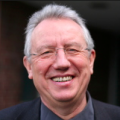
Antonius Schröder
Dr Antonius Schröder is a senior researcher and member of management board of sfs, responsible for European research. He is working in the research area “Work and Edu- cation in Europe” and has worked in and managed several European projects in the fields of industrial change and social dialogue, continuous vocational training, (distant) learning arrangements, evaluation, organisational and personnel development. He is Vice-Chairman of the Working Group People (Human Resources) at the European Steel Technology Plat- form ESTEP.

Erik Stam
Summary
Conclusions sent by the direction of the Summer Course
Sustainable development goals
Agenda 2030 is the new international development agenda approved in September 2015 by the United Nations. This agenda aims to be an instrument to favour sustainable human development all over the planet, and its main pillars are the eradication of poverty, a reduction in equality and vulnerability and fostering sustainability. It is a unique opportunity to transform the world up to 2030 and guarantee human rights for all.

1 - No poverty
Putting an end to poverty in all its forms, all over the world. Key issues: eradication of extreme poverty, reduction of poverty and vulnerability, social protection, access to basic services, fostering the resilience of poor and vulnerable people, development cooperation, solid legislative frameworks.
More information
5 - Gender equality
Achieve gender equality and empower all women and young girls. Key issues: the end of all forms of discrimination and violence, recognition of unpaid care and domestic work, shared responsibility, equal opportunities, full and effective participation in reproductive rights, equal rights vis-à-vis economic resources, access to land and other assets and ownership.
More information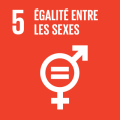
8 - Decent work and economic growth
Foster sustained, inclusive and sustainable economic growth, full and productive employment and decent work for everyone. Key issues: decent work, full and productive employment, entrepreneurship, fostering micro-companies and SMEs, employment rights, safe working environments, youth employment, equal opportunities and pay, strengthening of financial institutions, and breaking the link between economic growth and the degradation of the environment.
More information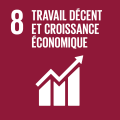
9 - Industry, innovation and infrastructure
Build resilient infrastructures, promote inclusive and sustainable industrialisation and foster innovation. Key issues: reliable, sustainable, resilient and quality infrastructures, inclusive and sustainable industrialisation, modernisation, clean and environmentally rational industrial technologies and processes, scientific research and improvement of technological capabilities, universal access to ICTs.
More information